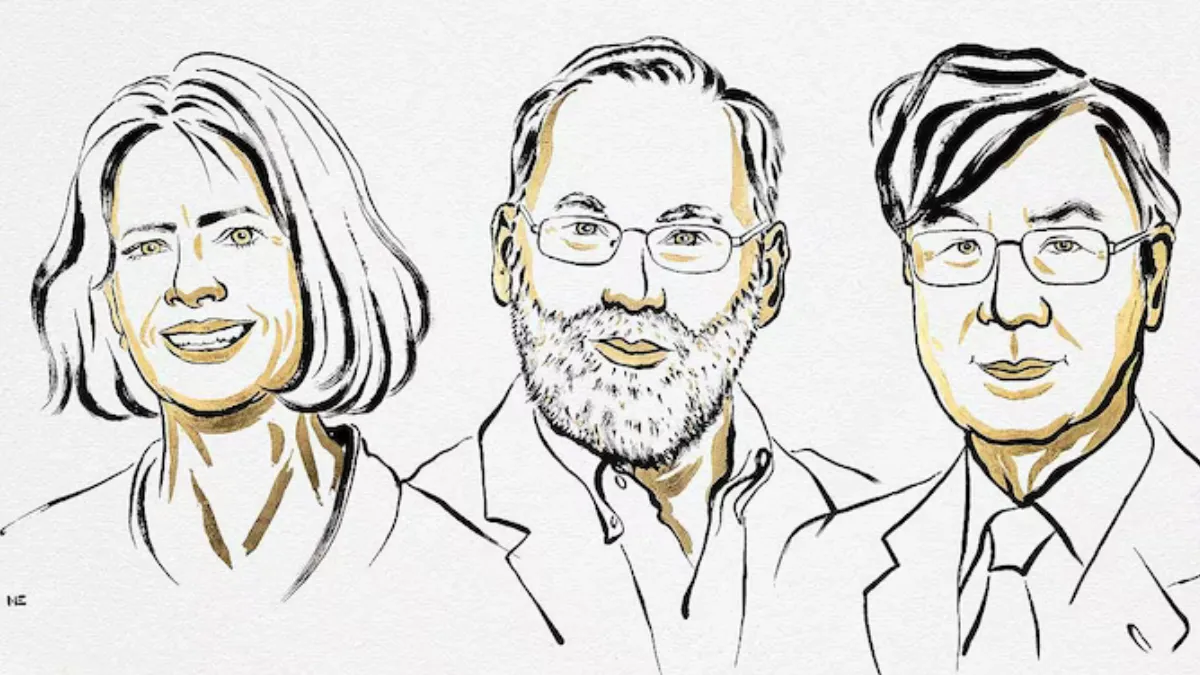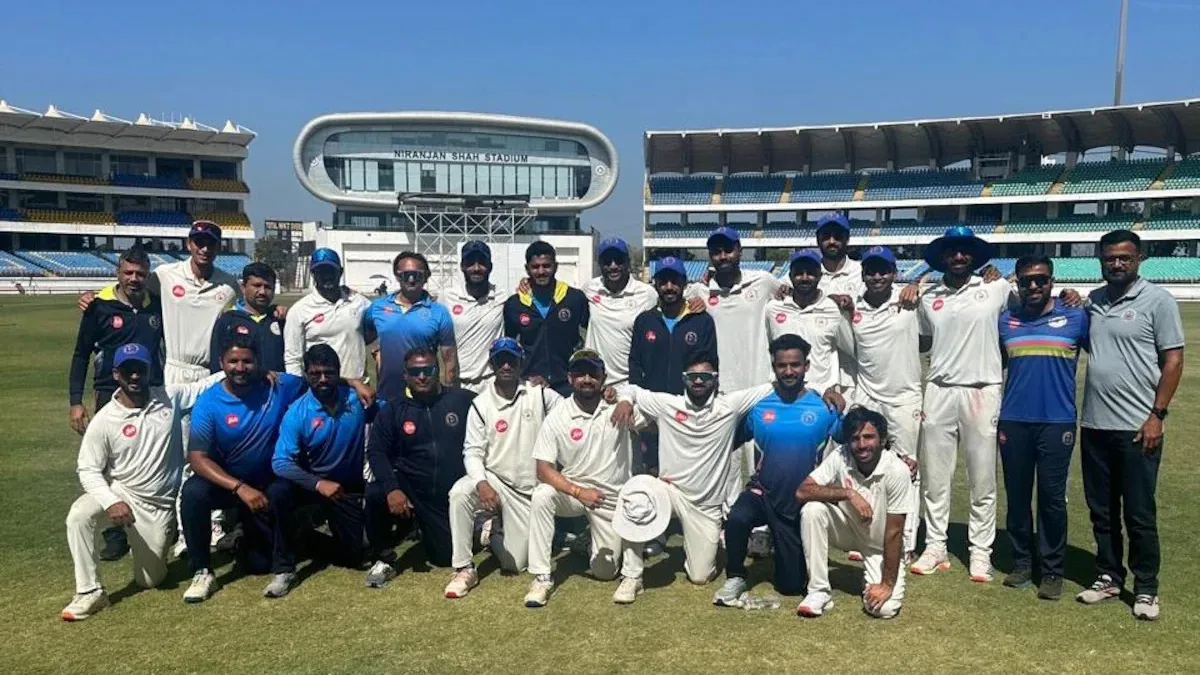Nobel Prize News: The 2025 Nobel Prize in Medicine has been awarded to three distinguished scientists—Mary E. Bruncko and Fred Ramsdell from the United States, and Shimon Sakaguchi from Japan—for their groundbreaking research on peripheral immune tolerance. Their discoveries have greatly advanced our understanding of how the human immune system works, ensuring it protects the body without mistakenly attacking its own tissues.
Understanding Peripheral Immune Tolerance
The human immune system is a highly sophisticated defense mechanism, protecting us daily from millions of microorganisms such as bacteria, viruses, and other potentially harmful entities. However, many microorganisms mimic human cells, making it difficult for the immune system to differentiate between threats and the body’s own tissues.
Bruncko, Ramsdell, and Sakaguchi made a significant contribution by discovering a type of immune cell called regulatory T-cells. These cells act as the immune system’s “guards,” ensuring that immune responses do not harm the body’s own organs. Their research provides insights into how autoimmune diseases such as Type 1 diabetes and rheumatoid arthritis occur when the immune system mistakenly attacks its own tissues.
Announcement of the 2025 Nobel Prize
The Nobel Prize announcements take place annually in various fields including Physics, Literature, Peace, Medicine, and Economics. The 2025 Nobel Week began on Monday, October 6, and will continue until October 13.
This year, the first award announced was for Medicine. Nobel Prizes in Medicine are awarded to scientists whose discoveries have significantly improved human health or led to major advances in medical science.
Winners of the 2025 Medicine Nobel Prize
BREAKING NEWS
— The Nobel Prize (@NobelPrize) October 6, 2025
The 2025 #NobelPrize in Physiology or Medicine has been awarded to Mary E. Brunkow, Fred Ramsdell and Shimon Sakaguchi “for their discoveries concerning peripheral immune tolerance.” pic.twitter.com/nhjxJSoZEr
The 2025 Nobel Prize in Medicine has been awarded to:
- Mary E. Bruncko – An American scientist recognized for her research on immune regulation.
- Fred Ramsdell – Another American scientist specializing in immunology and cellular responses.
- Shimon Sakaguchi – A Japanese scientist renowned for his discoveries on regulatory T-cells.
Their research has significantly advanced our understanding of the human immune system, especially how it protects the body without harming itself.
Ceremony and Prize Details
The award announcements were made at the Karolinska Institute in Sweden at 3:00 PM local time. Each winner will receive:
- A monetary award of 11 million Swedish Krona (approximately ₹9 crore)
- A gold medal
- A certificate detailing their achievement
The awards will be presented at a formal ceremony in Stockholm on December 10, 2025.
How the Announcement is Made
The Nobel Committee at the Karolinska Institute carefully selects winners after reviewing thousands of nominations. The secretary of the committee, Thomas Perlman, officially announces the laureates. The announcements are broadcast live on nobelprize.org, YouTube, and other social media platforms, allowing audiences worldwide to follow the event.
Implications of Their Research
The study of peripheral immune tolerance has vast medical implications. It explains how the immune system identifies self-antigens and prevents harmful immune reactions. This understanding is crucial for:
- Cancer treatment: Enhancing immune responses against tumors without damaging healthy tissue.
- Organ transplantation: Preventing rejection by controlling immune responses.
- Autoimmune disease management: Designing therapies to regulate overactive immune responses.
The Nobel Committee emphasized that this research opens a new direction in medical science, offering innovative solutions for human health.
About the Nobel Laureates
- Mary E. Bruncko: Known for her extensive research on immune cell regulation in the United States.
- Fred Ramsdell: Renowned immunologist specializing in how T-cells interact with the body’s tissues.
- Shimon Sakaguchi: Famous for discovering regulatory T-cells, which maintain the balance of immune responses.
The Broader Scope of Nobel Prize Announcements
The Nobel Prize week covers several fields with scheduled announcements:
- Medicine or Physiology: Monday, October 6
- Physics: Tuesday, October 7
- Literature: Thursday, October 9
- Peace: Friday, October 10
- Economics: Monday, October 13
Each category celebrates transformative contributions to science, society, and culture.
GLP-1 Research as a Potential Contender
Experts suggest that research on Glucagon-like peptide-1 (GLP-1), a hormone crucial in treating obesity and diabetes, may also gain recognition. GLP-1 based therapies such as Ozempic, Wegovy, and Mounjaro have revolutionized weight management and diabetes care globally.
The global impact of this research is immense, but many scientists contributed to the development of GLP-1 therapies, making it challenging to determine a single winner. Notable researchers include Jens Juul Holst, Joel Habener, Daniel Drucker, and Svetlana Mojosov.
Other Potential Research Highlights
- Ghrelin research: Conducted by Japanese researchers Kenji Kangawa and Masayasu Kojima, exploring appetite-stimulating hormones.
- Optogenetics: Controlling and studying cell activity using light.
- Microscopy: Imaging microscopic organisms and cells.
- BRCA gene studies: Identifying genes increasing the risk of breast and ovarian cancer.
- Cancer immunotherapy: Developing new drugs to fight cancer by harnessing the immune system.
Historical Context of the Nobel Prize
The Nobel Prizes were established in 1895 by Swedish inventor Alfred Nobel, with the first awards given in 1901. Initially, prizes were awarded in Physics, Chemistry, Medicine, Literature, and Peace, with Economics added later.
From 1901 to 2024, 229 individuals were awarded the Nobel Prize in Medicine. Notably, Har Gobind Khorana, an Indian-American scientist, received the Nobel Prize in Medicine in 1968 for his work on the genetic code, which laid the foundation for modern genetics, cancer research, and drug development.
Recent Nobel Prize Trends
In 2024, the Nobel Prize in Medicine was awarded to Victor Ambros and Gary Ruvkun for their discovery of microRNA, small RNA molecules that regulate gene expression. MicroRNAs help understand how cells develop and function, opening pathways for treating diseases.
Also read: List of Nobel Prize Winners in India: Names, Fields, and Their Impact
Nobel Peace Prize 2025 and Donald Trump
This year, American President Donald Trump has been nominated for the Nobel Peace Prize by Pakistan, marking another instance since 2018. Speculation is high worldwide regarding whether he will receive the award, especially considering his role in mediating agreements like the Abraham Accords between Israel and Arab nations.
Importance of Nobel Prize News
Every year, the Nobel Prize highlights innovations and discoveries that significantly impact human life. These awards are not just a recognition of scientific brilliance but also an inspiration for future research and societal development.
Following Nobel Prize news allows people, researchers, and policymakers to stay informed about groundbreaking discoveries and understand their implications for global health, peace, and progress.

















